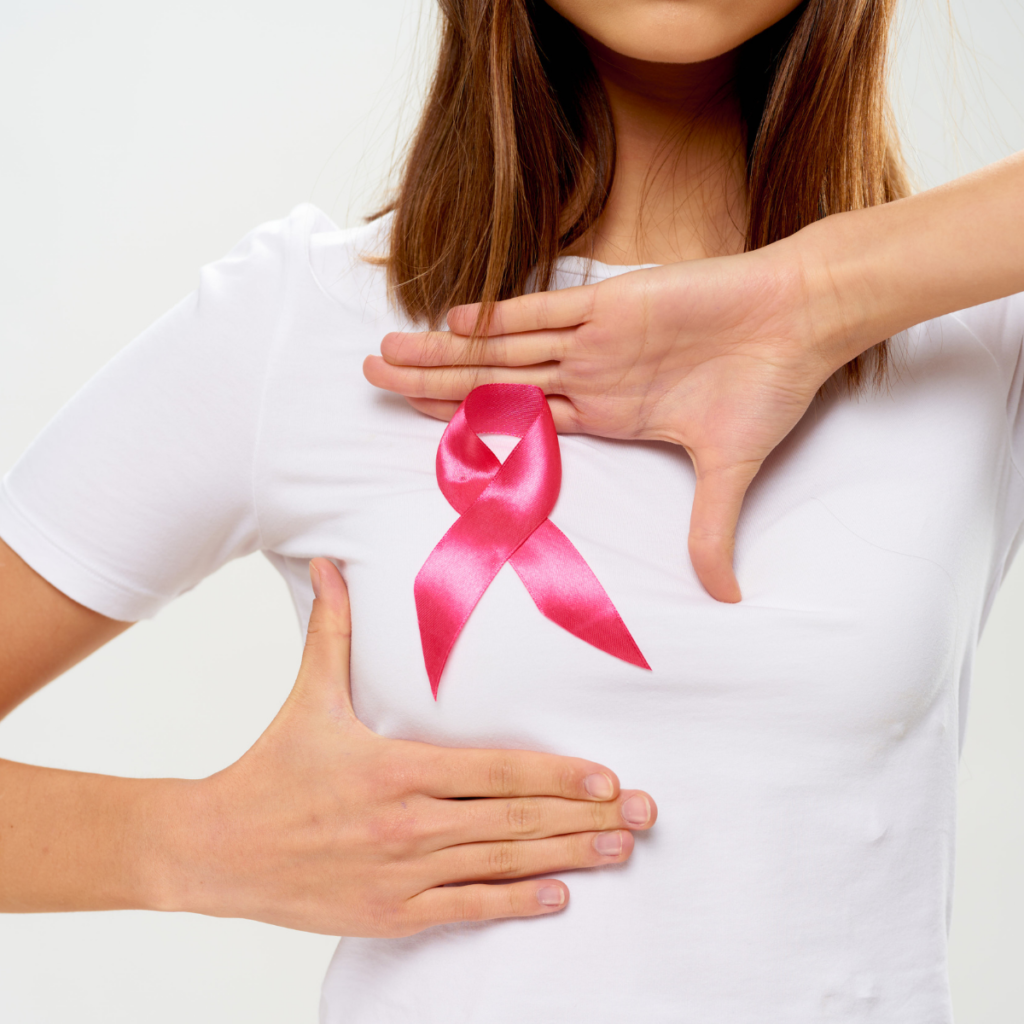

Breast cancer is a disease where cancer cells form in the tissues of the breast. Besides skin cancer, breast cancer is the most common cancer diagnosed in women in the United States. It is estimated that 1 in 8 women will be diagnosed with breast cancer in their lifetime. On average, a new woman is diagnosed with breast cancer every two minutes in the United States. Although uncommon, men can also develop breast cancer.
Signs and symptoms of breast cancer can vary from person to person. Some people do not experience any signs or symptoms at all.
Warning signs of breast cancer include:

Your risk for breast cancer can increase due to a variety of factors. These risk factors include:
1) Aging: The risk for breast cancer increases with age. Most breast cancer is found in women 50 years or older.
2) Family history of breast or ovarian cancer: Risk for breast cancer is higher for those who have mothers, sisters, daughters, or other family members with breast or ovarian cancers.
3) Reproductive history: Early menstrual periods (before the age of 12) or starting menopause late (after the age of 55) exposes women to hormones longer, increasing the risk of breast cancer.
4) Genetic mutations: Women who have inherited changes (mutations) to certain genes, such as BRCA1 and BRCA2, have a higher risk of breast or ovarian cancer.
In addition to asking your doctor about breast cancer screenings, the following changes to your lifestyle can help reduce the risk of breast cancer:
If you are at a higher risk of breast cancer due to family history, consult your doctor on additional preventative measures that can be taken to reduce the risk of breast cancer.
Chemotherapy, radiation, and medication are common treatments for breast cancer. However, these treatments can often leave the unwanted side effect of altered taste in your mouth. Dysgeusia is a condition described as having bitter, sour, or metallic taste. Having dysgeusia can make even your favorite foods taste unpleasant, and can lead to aversion to food, or poor nutrition. People with dysgeusia also tend to eat overly salty or sweet foods in an effort to mask the bad taste. If you are suffering from metallic taste as a result of breast cancer treatment, MetaQil is the only OTC solution for immediate relief of metallic taste.
MetaQil Oral Rinse is first-of-its kind product that alleviates metallic taste in the mouth, providing long-lasting comfort and relief.
MetaQil is the #1 over-the-counter solution for symptomatic relief of metallic taste. MetaQil’s scientifically designed formula alleviates metallic taste caused by chemotherapy, GERD, and a variety of medications. MetaQil gently cools the mouth and provides instant, long-lasting relief from metallic taste symptoms. It has a mild flavor and does not “sting” the mouth like an every-day mouthwash. Regular use of MetaQil can help patients return to healthy eating and adequate nutrient intake.
For best results, use approximately 5 ml (one teaspoon) of MetaQil®, rinse for 30 seconds, and spit out. MetaQil can be used on an as-needed basis. Use alone or after each time you brush your teeth
Important: If you are pregnant or breastfeeding, please consult your physician before using MetaQil. Do not use MetaQil if you are taking any medications that are contraindicated with the product. Please consult with your physician if you have any concerns regarding the use of this product. Keep out of reach of children.